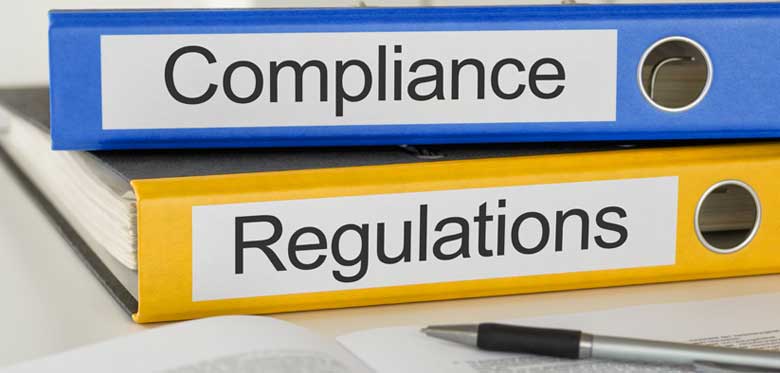Carl Johnson, partner and head of the regulatory department at Stephensons, outlines what we can expect to see in the field of Solicitors Regulation Authority enforcement during the 2020.
2019 was a significant year for the regulation of solicitors as we saw two major changes to the regulatory framework: the introduction of the new Standards and Regulations; and the lowering of the burden of proof in proceedings before the Solicitors Disciplinary Tribunal. We will see the impact of these changes during 2020 and there are also a number of key themes which it is expected will be prevalent in SRA investigations and SDT hearings. Part one of this article, which can be found here, dealt with the recent regulatory changes. Part two deals with the key themes which are expected to be prevalent.
Key themes
In terms of the SRA’s priorities for regulatory enforcement, it is expected that 2020 will continue where 2019 left off with money laundering compliance and sexual misconduct being recurring themes.
The profession has been subject to criticism in recent years for its failure to fully engage with the requirements of the anti-money laundering framework and the SRA’s Risk Outlook 2019/20 makes clear that money laundering compliance is their top priority. Firms need to ensure that their policies adequately deal with risk assessment and controls,customer due diligence, record keeping, monitoring, and reporting of suspicious activity. Solicitors need to ensure that they comply with those policies and procedures.
As we have seen in recent years, failing to comply with the anti-money laundering framework can have serious consequences for solicitors. This point was dealt with in the SRA’s Risk Outlook which indicates as follows:
“Taking appropriate action
When we find that firms are not meeting their AML obligations, we will take action.
We began 172 investigations about AML compliance in the first three quarters of 2019, compared to 314 in the same period in 2018.
In the last five years, we have taken more than 60 cases to the SDT. This has led to more than 40 solicitors being struck off, suspended from practice or voluntarily coming off the roll.”
Colette Best, the SRA’s director of anti-money laundering indicated in November 2019 that the regulator intends to proceed with a rolling programme of requesting risk assessments from firms so as to proactively monitor compliance within the profession. Where risk assessments prove to be deficient or non-existent there will clearly be a risk of regulatory action being taken. Incidentally Stephensons was one of the 400 firms who formed part of the SRA’s pilot in March 2019 and our risk assessment was found to be fully compliant.
The SRA’s increased willingness to investigate complaints of sexual misconduct is likely to be reflected in a number of cases before the Solicitors Disciplinary Tribunal. The case of Beckwith which was concluded in October 2019; and the ongoing proceedings before the tribunal in relation to three senior figures within Baker McKenzie are likely to be the first of many high profile cases. In October 2019, the Law Gazette noted the following comments from Paul Philip, the SRA’s chief executive, during his address to the SRA’s annual compliance conference:
“Some people say that the regulator shouldn’t be involved in this type of thing. I beg to differ. For the most part we are talking about breaches of our code, either through an abuse of authority or a complete lack of integrity.”
Not only will the SRA investigate those alleged to have committed acts of sexual misconduct but those who have dealt with complaints internally may also find themselves the subject of enforcement action. This is likely to be the case if there is any suggestion that an investigation has been deficient, a firm fails to comply with its reporting obligations and/or if any parties are alleged to have been actively discouraged from reporting matters to the authorities. The SRA’s Risk Outlook highlights the use of non-disclosure agreements (NDAs) as a potential issue and makes clear that solicitors must not draft inappropriate terms which either aim to or have the effect of preventing the reporting of wrongdoing.
It is also expected that allegations of lacking integrity will continue to be a feature of cases which are heard before the SDT, both alongside allegations of dishonesty and in isolation. It will be interesting to see what approach the SRA take to the issue of integrity when enforcing the newly-introduced Code of Conduct for Firms. This point is raised in the SRA’s Risk Outlook which states as follows:
“Failures of integrity can happen because a firm’s culture does not encourage integrity. For instance, junior staff may not feel able to admit to mistakes. That can lead to staff trying to cover up problems rather than the firm being able to remedy them.”
As discussed in the first part of this article, the SRA may consider action against a firm’s management and employees where they are alleged to have contributed to a firm’s breach of the Code of Conduct for Firms. In recent years there have been a number of high-profile cases before the SDT where the culture within firms has been a cited as a relevant factor in cases involving allegations of dishonesty and lacking integrity. Previously this has mainly presented a PR issue for firms however moving forwards it is expected that this will become a regulatory issue as well.
If you require assistance in relation to an SRA investigation or an SDT hearing, please call 01616 966 229 to speak with a member of our team or complete our online enquiry form. For more information on our work in this area please see our SRA investigations and SDT hearings page, which can be found here.




Comments